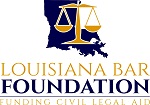Metro Centers for Community Advocacy can help victims who have been sexually assaulted or raped.
Some Facts about Sexual Abuse
There are many reasons why a physical exam is important after experiencing sexual abuse.
Some reasons include the following:
- to determine the presence of sexually transmitted diseases, pregnancy, or DNA evidence,
- to obtain the history of occurred,
- to identify and document evidence of injury or infection,
- to diagnose and treat any injuries resulting from the attack,
- to assess safety and make a report to the police if needed,
- to document findings in such a way that information can be effectively and accurately presented, if requested by a law enforcement agency, and
- to help to ensure well being.
Victims over 18 years old should remember that even if they do have a full exam and a rape kit is completed, they are not obligated to make a police report.
Once a decision is made to get an exam done, the following information could help:
- There are several hospitals in this area that are specially equipped to help victims of sexual assault.
- In New Orleans, LSU interim hospital, also known as University Hospital, at 2021 Perdido St. has the SANE (Sexual Assault Nurse Examiner) program called the SAFE Center to assist adult victims. Children’s Hospital has a CARE program for child victims of sexual assault. If the assault has occurred within 72 hours, the child needs to be seen in the ER. If the assault is older than 72 hours, it is best that the child is seen in a clinic type setting of the CARE cottage.
- Once the victim arrives at any hospital, the victim should ask for a SANE nurse or the person who handles sexual assault cases.
- The nurse will explain options available to victims, and will give information about the available Safe centers.
- Victims over 18 years old should remember that even if they do have a full exam and a rape kit is completed, they are not obligated to make a police report.
- If the victim decides to file a report, the SANE nurse will contact the police.
If the victim decides to call the police after the assault, the following information could help:
- Remember, the first officers arriving on the scene are there to help, to ensure safety, and to gather information.
- Who, what, and where are the most common questions the police might ask. They know talking about the assault might be difficult, but the information can be used to be able to provide the appropriate resources.
- The victim should ensure her/ his own safety before calling the police; this is the police’s first concern.
- The 911 operator will fill a complaint and will ask questions about the incident. This will help the officers assist the victim better.
- Avoid bathing, urinating, wiping, eating or drinking because such actions could cause evidence to be destroyed. Do not discard the clothing worn during the attack. If a change of clothes is necessary, the clothes worn during the attack should be put in a paper bag and given to the police officers.
- In most sex crimes a detective will be called to the scene. If the victim has not gone to the hospital for a medical exam yet, the detective will transport you. The detective will also interview any witnesses, exam the scene, and attempt to apprehend the perpetrator.
- If questioned about the investigation, direct questions to the director or supervisor of the case. Any questions after the arrest can be directed to the District Attorney handling the case.
HOTLINE
24 HOUR CRISIS HOTLINE
504-837-5400
TOLL-FREE
1-888-411-1333
VIA LINK
211
APPOINTMENTS AVAILABLE:
Jefferson Parish, Orleans Parish, St. Tammany and River Parishes
ALL SERVICES ARE FREE AND CONFIDENTIAL





